Dhania (Coriander): Uses, Benefits & Side Effects
By Dr Anuja Bodhare +2 more

Get,

to manage your symptom
Get your,


4 Cr+ families
benefitted

OTP sent to 9988776655



You’ve successfully subscribed to receive
doctor-approved tips on
Whatsapp

Get ready to feel your best.

Hi There,
Download the PharmEasy App now!!


Register to Avail the Offer
Send OTPBy continuing, you agree with our Privacy Policy and Terms and Conditions

Hi There,
Sign up on PharmEasy now!!
Trusted by 4 crore+ families

OTP sent to 9988776655



You have unlocked 25% off on medicines




Code: NU25
By Dr Anuja Bodhare +2 more
Table of Contents
Dhania, also called coriander, is a herbal plant that might have various uses. Its botanical name is Coriandrum sativum L., and it belongs to the family Apiceae. All the parts of this plant might have potential use as a traditional remedy and flavouring agent for various diseases by different civilizations and in the folk medicine system1.
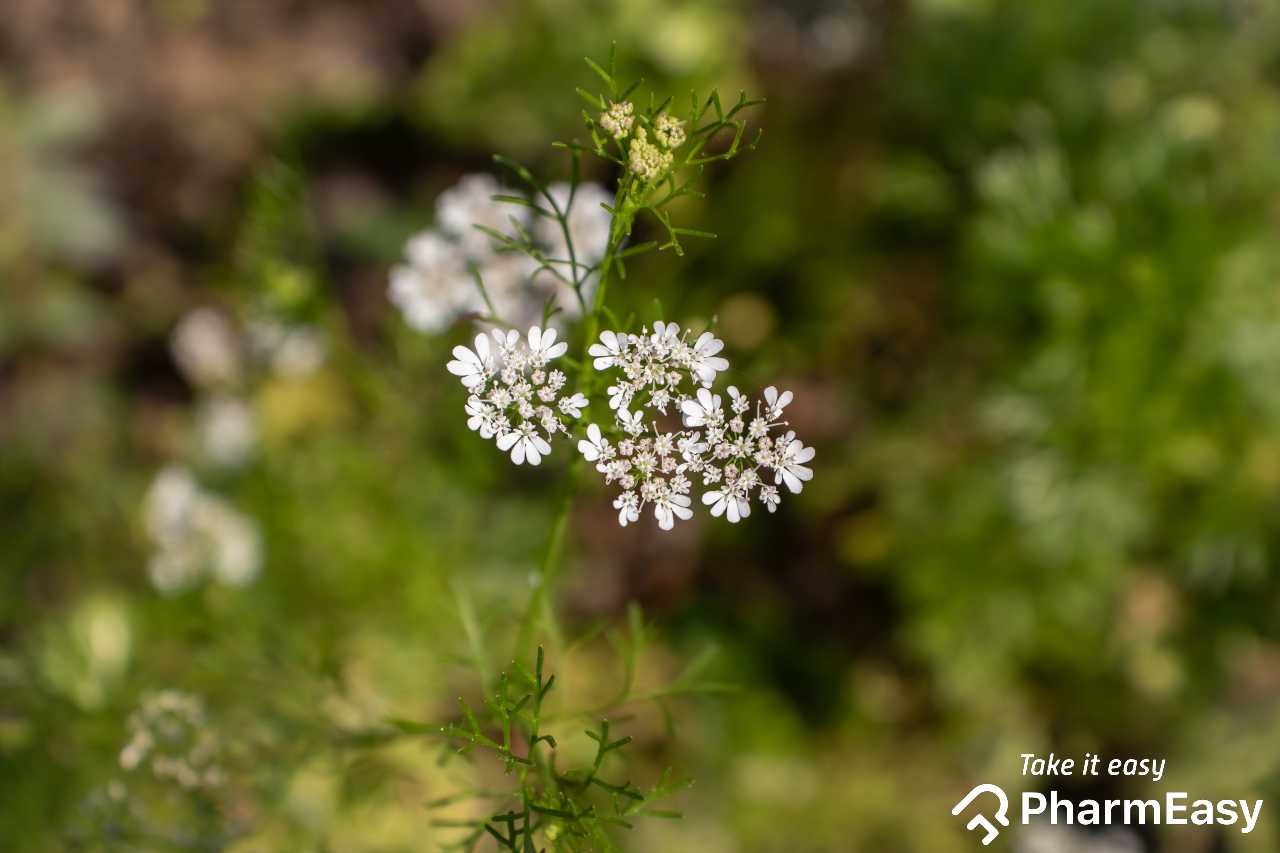
Coriander is a soft and slender plant growing up to 50 cm in height and cultivated throughout India. Dhania is one of the oldest herbs recorded and has been used for more than 5000 years. Young coriander plants are utilized in the kitchen to prepare salads, soups, curries, and sauces, while the fruit obtained from coriander is mainly used as a seasoning for pickles, mixtures, etc. The essential oil of dhania is employed in pharmaceutical formulas. Apart from being used in the kitchen, dhania is also popular for its potential healing properties and possible medicinal benefits2.
Did you know?
The main component of essential oil from coriander seeds is linalool (60%-80%). This essential oil also contains ketones, alcohols, and esters like α-pinene (0.2-8%), geranyl acetate (0.15-4.7%), γ-terpinene (1%-8%), and camphor (0.9%-4.9%)1. In 100 grams of dhania, the nutrients found are2:
In an interesting study, I read that coriander leaf extract, called CSE, was tested on human skin cells and mice to see if it might protect against UV damage. The results showed that CSE may increase collagen production, which keeps the skin healthy, and reduce an enzyme that breaks down collagen. This suggests that coriander leaf extract may help ward off skin ageing caused by the sun7.
Dr. Siddharth Gupta, B.A.M.S, M.D (Ayu)
All parts of dhania have different potential uses and has been used traditionally across the world. Dhania is known for its potential properties like:
Dhania might have the possible uses for human health.
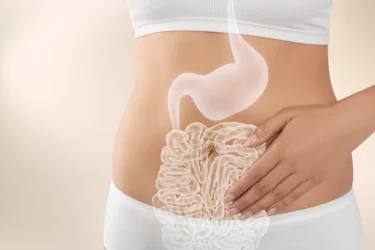
Dhania might help with digestive problems, abdominal discomforts, and loss of appetite. The leaves of dhania may be used as an appetiser and might also help with indigestion and may help relieve stomach cramps and muscle spasms. The fruits of dhania may also be helpful for indigestion. Dhania is also known to be a good carminative (relieving gas accumulation) agent. In some parts of Pakistan, dhania has been used for flatulence, diarrhoea, stomach problems, vomiting, and jaundice. Dhania might also help enhance bowel movements and might function as a mild laxative. It may also be effective against ulcerative colitis and hepatitis2. However, kindly consult a doctor before use.

The leaves of dhania might be consumed and also applied topically for coughs and chest pains. The fruits of dhania might have a potential use against bronchitis, cough, and intermittent fevers. Dhania might also exhibit expectorant (expelling mucus) properties. Seeds of dhania might be helpful for influenza as seen in traditional Chinese medicine. Dhania might also be effective for dyspnoea (difficulty in breathing)1,2. However, respiratory diseases can be serious and must be properly diagnosed and treated by a doctor.

Dhania might help with disorders like pimples, eczema, dry skin, skin ulcers, and blackheads. It may also be helpful for allergies, hay fever, rashes, and urticaria2. However, more research is required to prove such claims.
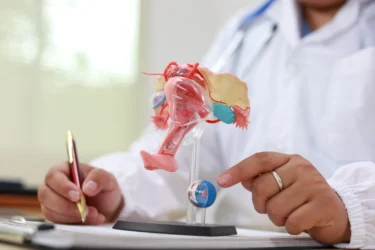
Dhania, boiled with milk, might have positive effects on the central nervous system and may help with syncope, vertigo, and memory loss. It might also help relieve anxiety. Dhania may also be helpful for insomnia (sleeplessness). Due to its vitamin K content, dhania may be helpful for Alzheimer’s disease. The aqueous and ethanolic extracts of coriander seeds might also have a potent use against convulsions1,2. However, more research is required to ascertain such claims. Therefore, kindly consult a doctor for diseases related to the central nervous system and do not self-medicate.
From what I have seen, coriander seeds might be a potentially healthy ingredient to include in your diet. Coriander seeds, whether raw or roasted, may have beneficial properties as a functional food. They contain compounds that might show inhibitory effects on tumour cell growth8.
Dr. Rajeev Singh, BAMS

Dhania might be good for the eyes, and it may decrease the burning sensation and irritation. The antioxidants present in dhania might have a potential to help with eye diseases2. However, consult a doctor for proper diagnosis and treatment of eye problems.
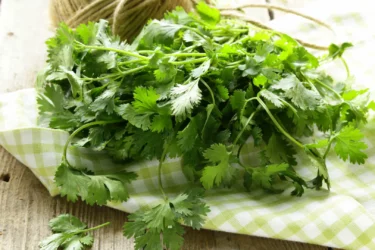
Diuresis means expelling excess fluid and salt from the body. According to studies, the seeds of dhania might help enhance diuresis, glomerular filtration rate, and might lead to excretion of electrolytes from the body in a dose related manner2. However, more research is required to confirm such potential effects of dhania.

Dhania might prove to be helpful for diabetic patients. It may help with diabetes by stimulating insulin secretion and might lower blood sugar levels in the body2. However, conditions like diabetes should be properly diagnosed and treated by a doctor. So, kindly consult a doctor and do not self-medicate.
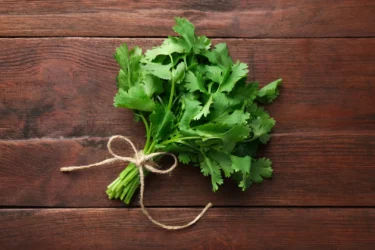
According to studies, the essential oil of dhania obtained from the seeds might exhibited potential antifungal activity against Candida albicans. Essential oil and aqueous extract of coriander leaves might exhibit inhibitory activity against Gram-positive group of bacteria like Staphylococcus aureus, Bacillus sp and Gram-negative bacteria like Escherichia coli, Salmonella typhi, Proteus mirabilis etc1. The decoction obtained from dhania leaves and seeds might also help reduce fever2.
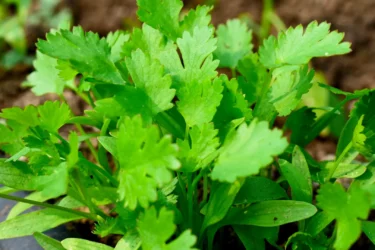
According to animal studies, coriander seeds might exhibit potential cholesterol lowering effects. The observations made were a possible reduction in triglyceride levels, low density lipoprotein (bad cholesterol) and very low density lipoprotein. There was also a potential increase in high density lipoprotein (good cholesterol) levels1.
Though there are studies that show the potential uses of dhania in various conditions, these are insufficient and there is a need for further studies to establish the true extent of the benefits of dhania on human health.
As per my observations, coriander leaves might act as a natural detoxifier and chelation agent. It may help flush out heavy metals from the body after chemotherapy or remove mercury based dental fillings. However, more research is needed to thoroughly understand its effectiveness9.
Dr. Smita Barode, B.A.M.S, M.S.
Dhania essential oil is used in different ways like:
The green leaves of coriander, also called cilantro, are utilised in the preparation of salads, Mexican salsas, chillies, seafood dishes and different ethnic foods. The aromatic coriander fruit or seeds are used in dishes, bread, soups, stews, curry meat, and puddings3.
You must consult a qualified doctor before taking any herbal supplements. Do not discontinue or replace an ongoing treatment of modern medicine with an ayurvedic/herbal preparation without consulting a qualified doctor.
Dhania as a seasoning and spice is considered safe by the US Food and Drug Administration. Dhania and its constituent linalool have been tested for safety. Dhania and linalool did not have toxicity, denoting that dhania essential oil is safe for use. Dhania leaves and seeds have not been associated with any adverse events when used in traditional medicine.
However, there was a case report of a woman from Iran who reported endocrine toxicity when she had consumed an excess of dhania leaf extract for seven consecutive days3. Therefore, exercise caution while using dhania.
Also Read: Thyme (Banajwain): Uses, Benefits, Side Effects and More By Dr. Rajeev Singh
General precaution and a discussion with your doctor before consuming dhania is recommended, especially by pregnant women and lactating mothers.
It might have unknown reactions with drugs. However, more research is required to find out such reactions.
Dhania, also known as cilantro or coriander, is a herbal plant that might have various medicinal and culinary uses. It is used as a herbal flavouring agent in the preparation of sauces, salads, chillies, seafood dishes, Mexican salsa, and different ethnic foods. Dhania is also used to prepare herbal medicines3.
Dhania is known by various names like Chinese parsley, coriander, cilantro, coriandro, coriander, culantrillo. Its scientific name is Coriandrum sativum6.
Coriandrum sativum is a native herb of Italy and is cultivated in the Mediterranean regions like Egypt, Morocco, Malta, Asia (Bangladesh, Pakistan, China, and India), and central and eastern Europe1.
Yes, the juice obtained from fresh dhania leaves, when applied to the forehead, might help with headaches2. However, more research is required to prove these possible effects of dhania for heaaches.
Yes, dhania might have a potential to help with urethritis and urinary tract infections. It may also help with problems related to the bladder1,2. Kindly consult a doctor and do not self-medicate.
Due to its high iron content, dhania may be helpful for people suffering from anaemia2. However, more research will be required to prove these claims.
Yes, the essential oil of dhania might have antifungal potential . Dhania essential oil might exhibit fungicidal (fungi killing) properties against Candida albicans2. However , more research is required to ascertain such claims.
In India, dhania is widely cultivated in Maharashtra, Uttar Pradesh, Rajasthan, Madhya Pradesh, Karnataka, Bihar, Tamil Nadu, West Bengal, Andhra Pradesh, and Jammu and Kashmir2.
In Ayurvedic medicine, the seeds of dhania are used with caraway and cardamom seeds and might be helpful for digestion related problems1. Kindly consult a doctor before use. Do not self-medicate.
In traditional Chinese medicine, seeds of dhania may be helpful for indigestion, stomach pain, bad breath, influenza, and anorexia (loss of appetite)1. However, more research is required to prove such effects.
Yes, dhania might have potential use as an ointment to deal with arthritis (swelling of joints) and rheumatism (a condition affecting muscles, bones, and joints)1. More research is required to prove its potential use.
The potential antiseptic properties of dhania might help deal with mouth ulcers2. Please consult a doctor for proper diagnosis and treatment of mouth ulcers.
Disclaimer: The information provided here is for educational/awareness purposes only and is not intended to be a substitute for medical treatment by a healthcare professional and should not be relied upon to diagnose or treat any medical condition. The reader should consult a registered medical practitioner to determine the appropriateness of the information and before consuming any medication. PharmEasy does not provide any guarantee or warranty (express or implied) regarding the accuracy, adequacy, completeness, legality, reliability or usefulness of the information; and disclaims any liability arising thereof.
Links and product recommendations in the information provided here are advertisements of third-party products available on the website. PharmEasy does not make any representation on the accuracy or suitability of such products/services. Advertisements do not influence the editorial decisions or content. The information in this blog is subject to change without notice. The authors and administrators reserve the right to modify, add, or remove content without notification. It is your responsibility to review this disclaimer regularly for any changes.
Comments

Leave your comment...
You may also like
Comments